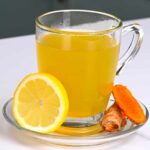Advanced Offer (FPO) Patanjali Ayurve-Backed Ruchi Soya Industries has received an offer for 1.8 shares of Crore equity to the size of the 4.89 crore stock offer, subscribe to 37 percent on March 25, the second day of the offer.
Retail investors have bid for 39 percent of the shares of the portion they reserve, while the quota allocated by employees subscribed 3.68 times.
Qualified institutional buyers and non-institutional investors also begin to submit their bids, because the portion is set aside for each of them subscribes to 41 percent and 26 percent.
Yoga Teacher-Backed FMCG Company Looking to collect Rs 4,300 Crore through the FPO, where RS 1,290 Crore has been raised through the book anchor.
The price ribbon for offers is Rs 615-650 per share, significantly lower than the current market price of Rs 873. Public issues are closed March 28.
“Ruchi Soya FPO looks good for a long-term perspective. In the past few years, stocks have shown very high volatility and the judgment is rather weak too. However, new management settled and the results in the coming future can be the key. The driver’s stock,” said Ravi Singh -Whew of the president and research head in Sharindia.
In terms of assessment, Amarjeet S Maurya from Angel Broking said the post-edition of the FPO TTM P / E (Trailing twelve months, income) functions at 26.6x (at the top of the problem price ribbon), which is low compared to the rival of Adani Wilmar (TTM PE -57.8x).
Furthermore, Ruchi Soya has a strong brand withdrawal, extensive distribution, healthy ROE (FY21). Considering all the positive factors, Maurya said the judgment was reasonable. “So, we recommend a subscription ranking on this problem.”
Incorporated in 1986, Ruchi Soya Industries is one of the leading FMCG brands in the edible oil sector. This is the largest producer of soybean food with the presence throughout the value chain in the upstream and downstream business with oil palm plantations.
The company, which was acquired by Patanjali Group in 2019, operates in different verticals such as oil and edge products that can be eaten, olocimia, textured soy protein (TSP), Honey and Atta, oil palm plantations, biscuits, noodles, and rusks, noodles and breakfast cereals, nutraceutical and health, and renewable energy wind power.


















